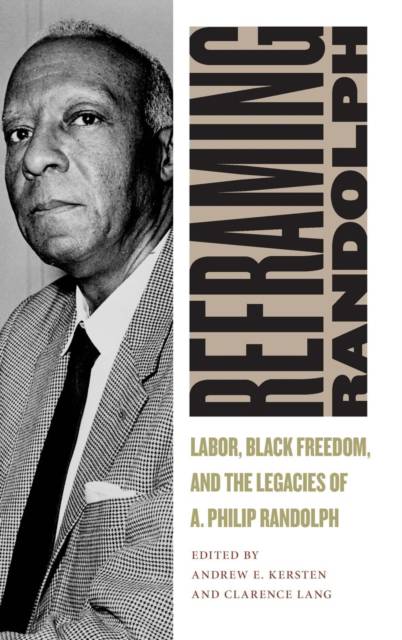
- Retrait gratuit dans votre magasin Club
- 7.000.000 titres dans notre catalogue
- Payer en toute sécurité
- Toujours un magasin près de chez vous
- Retrait gratuit dans votre magasin Club
- 7.000.0000 titres dans notre catalogue
- Payer en toute sécurité
- Toujours un magasin près de chez vous
Reframing Randolph
Labor, Black Freedom, and the Legacies of A. Philip Randolph
Andrew E Kersten, Clarence LangDescription
At
one time, Asa Philip Randolph (1889-1979) was a household name. As president of
the all-black Brotherhood of Sleeping Car Porters (BSCP), he was an embodiment
of America's multifaceted radical tradition, a leading spokesman for Black
America, and a potent symbol of trade unionism and civil rights agitation for
nearly half a century. But with the dissolution of the BSCP in the 1970s, the
assaults waged against organized labor in the 1980s, and the overall silencing
of labor history in U.S. popular discourse, he has been largely forgotten among
large segments of the general public before whom he once loomed so large.
Historians, however, have not only continued to focus on Randolph himself, but
his role (either direct, or via his legacy) in a wide range of social,
political, cultural, and even religious milieu and movements.
the wall to reexamine and reframe it, allowing scholars to regard him in new,
and often competing, lights. This collection of essays gathers, for the very
first time, many genres of perspectives on Randolph. Featuring both established
and emergent intellectual voices, this project seeks to avoid both hagiography
and blanket condemnation alike. The contributors represent the diverse ways
that historians have approached the importance of his long and complex career
in the main political, social, and cultural currents of twentieth-century
African American specifically, and twentieth-century U.S. history overall. The
central goal of Reframing Randolph is
to achieve a combination of synthetic and critical reappraisal.
Spécifications
Parties prenantes
- Auteur(s) :
- Editeur:
Contenu
- Nombre de pages :
- 320
- Langue:
- Anglais
- Collection :
- Tome:
- n° 12
Caractéristiques
- EAN:
- 9780814785942
- Date de parution :
- 09-01-15
- Format:
- Livre relié
- Format numérique:
- Genaaid
- Dimensions :
- 142 mm x 251 mm
- Poids :
- 544 g

Les avis
Nous publions uniquement les avis qui respectent les conditions requises. Consultez nos conditions pour les avis.






